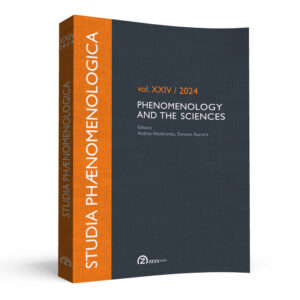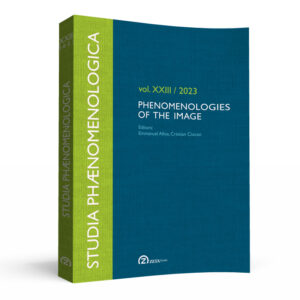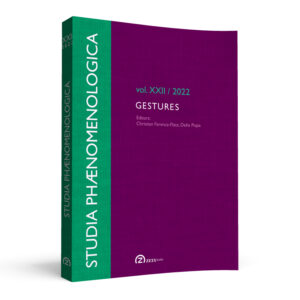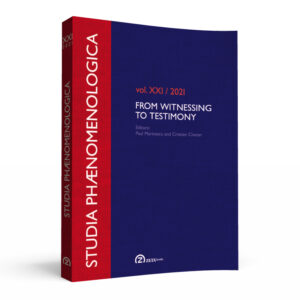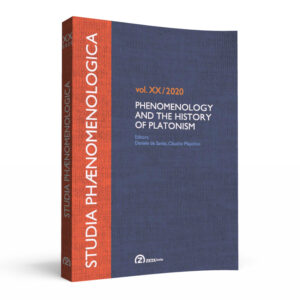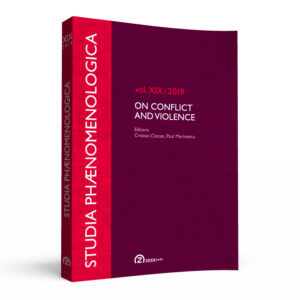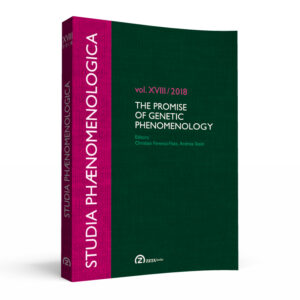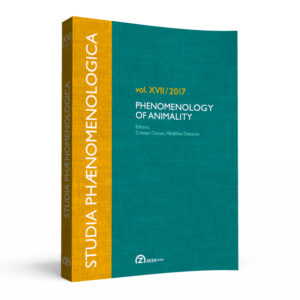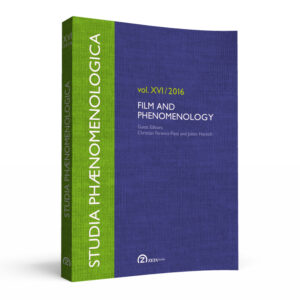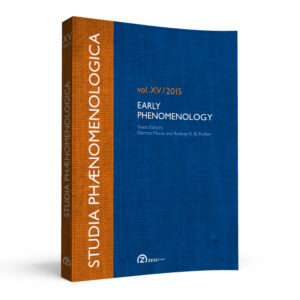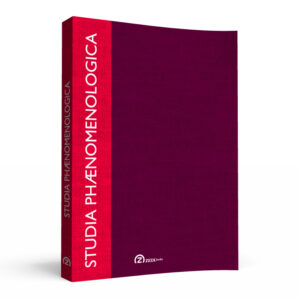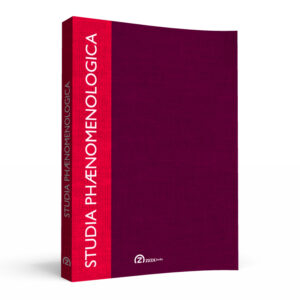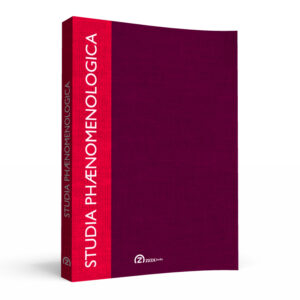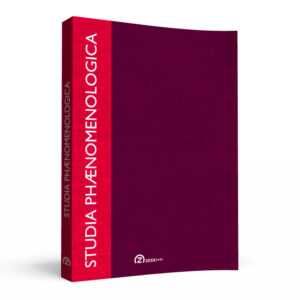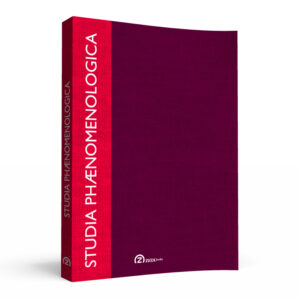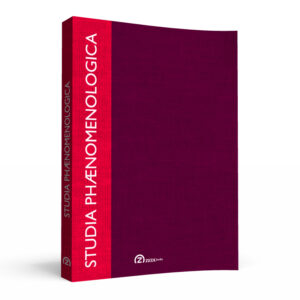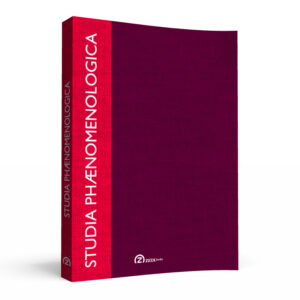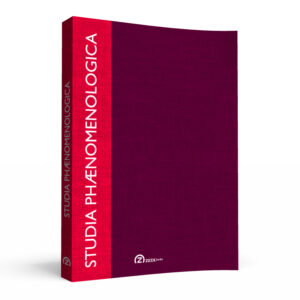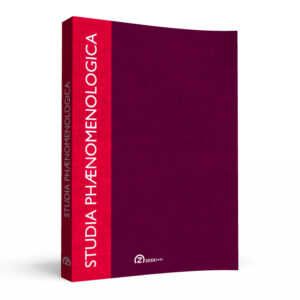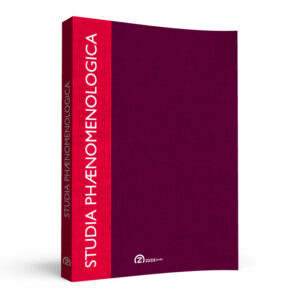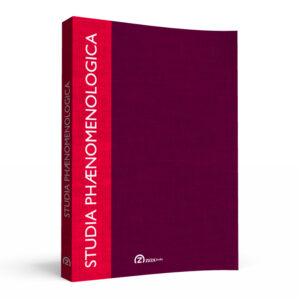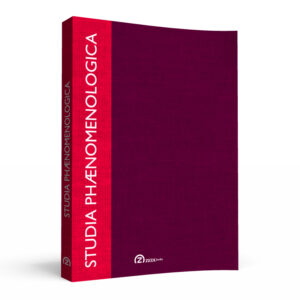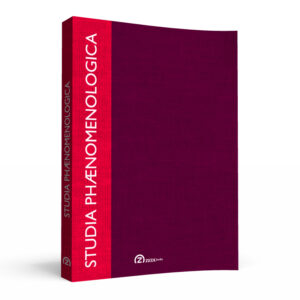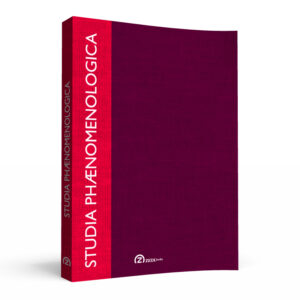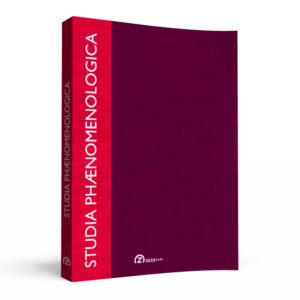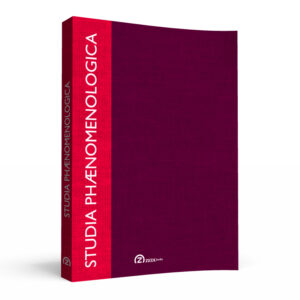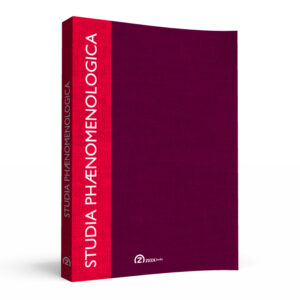Studia Phaenomenologica
Published in collaboration with the Romanian Society for Phenomenology.
ISSN 1582-5647 (print) / ISSN 2069-0061 (online)
Online Access via Philosophy Documentation Center
This subscription-based journal offers a hybrid open access option. If you are interested in this option, please Email Us.
For Institutional subscriptions (paperback or IP range, campus-wide online access), please Contact Us.
Studia Phaenomenologica is an international yearbook that publishes original work in phenomenology and hermeneutics in English, French, and German. All articles are blind-refereed or invited. Each issue is a thematic dossier focused on an essential phenomenological theme, be it a particular dimension of a philosopher’s work or a phenomenological problem important for contemporary discussion. In addition to the thematic dossiers, each issue contains a “Varia” section with contributions from a variety of phenomenological perspectives.
Submit an article: submissions@phenomenology.ro. See GUIDELINES FOR AUTHORS
Submit a book-review: book-review-editor@phenomenology.ro
Subscriptions / Orders: orders@zetabooks.com
Editor-In-Chief: Cristian Ciocan (University of Bucharest)
Book-Review-Editor: Christian Ferencz-Flatz (UNATC, Bucharest)
Editorial Assistants: Iulia Mitu (Universität Tübingen), Vasile Visoțchi (University of Bucharest)
Editorial Board: Alexandru Bejinariu (Institute for Philosophy “Alexandru Dragomir”, Bucharest), Remus Breazu (UNArte, Bucharest), Ion Copoeru (Babeș-Bolyai University), Mădălina Diaconu (University of Vienna), Maria Gyemant (Archive Husserl de Paris), Paul Marinescu (Institute for Philosophy “Alexandru Dragomir”, Bucharest), Bogdan Mincă (University of Bucharest), Ovidiu Stanciu (Universidad Diego Portales, Santiago de Chile).
Advisory Board: Renaud Barbaras (Paris); Roxana Băiașu (Oxford); Elizabeth A. Behnke (Ferndale); Rudolf Bernet (Louvain); Virgil Ciomoş (Cluj-Napoca), Jean-François Courtine (Paris); Renato Cristin (Trieste); Françoise Dastur (Nice); Natalie Depraz (Paris); Parvis Emad (Chicago); Eliane Escoubas (Paris); Günter Figal (Freiburg); Jean Greisch (Paris); Jean Grondin (Montreal); Marion Heinz (Siegen); Klaus Held (Wuppertal); Friedrich-Wilhelm Von Herrmann (Freiburg); Theodore Kisiel (De Kalb – Illinois); Jean-Yves Lacoste (Paris) Gabriel Liiceanu (Bucharest); Jean-Luc Marion (Paris); Delia Popa (Louvain); Hans Rainer Sepp (Prague); Helmuth Vetter (Vienna); Bernhard Waldenfels (Bochum).
INDEXED / ABSTRACTED: Arts & Humanities Citation Index (AHCI Q2 / Clarivate); Current Contents / Arts & Humanities (Clarivate); Philosopher’s Index; International Philosophical Bibliography (Louvain); SCOPUS; EBSCO; ERIH Plus; CEEOL.
Review copies should be sent at the following address: Studia Phaenomenologica, OP 15, PO Box 100, RO-014840, Bucharest, Romania.
Publication Ethics Statement
The editorial team of Studia Phaenomenologica is committed to ensuring the integrity of the publication process. Conformance to standards of ethical behavior is therefore expected of all parties involved: Authors, Editors, Reviewers, and the Publisher.
Authors should present an objective discussion of the significance of research work as well as sufficient detail and references to permit others to confirm a chain of reasoning or experimental result. Fraudulent or knowingly inaccurate statements constitute unethical behavior and are unacceptable. Review articles should also be objective, comprehensive, and accurate accounts of the state of the art. The authors should ensure that their work is entirely original works, and if the work and/or words of others have been used, this has been appropriately acknowledged. Plagiarism in all its forms constitutes unethical publishing behavior and is unacceptable. Submitting the same manuscript to more than one journal concurrently constitutes unethical publishing behavior and is unacceptable. Authors should not submit articles describing essentially the same research to more than one journal. The corresponding author should ensure that there is a full consensus of all co-authors in approving the final version of the paper and its submission for publication.
Editors should evaluate manuscripts exclusively on the basis of their academic merit. An editor must not use unpublished information in the editor’s own research without the express written consent of the author. Editors should take reasonable responsive measures when ethical complaints have been presented concerning a submitted manuscript or published paper.
Reviewers must treat received manuscripts as confidential documents. Privileged information or ideas obtained through peer review must be kept confidential and not used for personal advantage. Reviews should be conducted objectively, and observations should be formulated clearly with supporting arguments, so that authors can use them for improving the paper. Any selected referee who feels unqualified to review the research reported in a manuscript or knows that its prompt review will be impossible should notify the editor and excuse himself from the review process. Reviewers should not consider manuscripts in which they have conflicts of interest resulting from competitive, collaborative, or other relationships or connections with any of the authors or institutions connected to the paper.
The Publisher will respond to alleged or proven cases of research misconduct, fraudulent publication, or plagiarism in close collaboration with the editors. The publisher will ensure that appropriate measures are taken to clarify the situation and to amend the article in question if necessary. This may include the publication of an erratum, clarification or, in the most severe case, the retraction of the affected work. The publisher, together with the editors, shall take reasonable steps to identify and prevent publication of papers where research misconduct has occurred, and under no circumstances encourage such misconduct or knowingly allow such misconduct to take place.
CALL FOR PAPERS: Studia Phaenomenologica vol. 26 (2026): “Phenomenology and Psychopathology”
CALL FOR PAPERS: Studia Phaenomenologica Vol. 25 / 2025 “Eco-Phenomenology”

